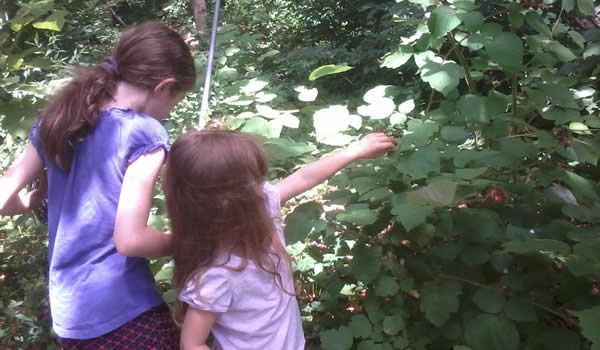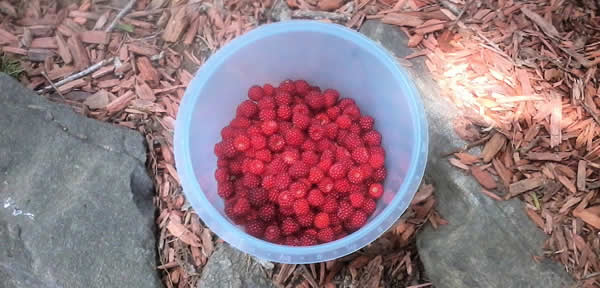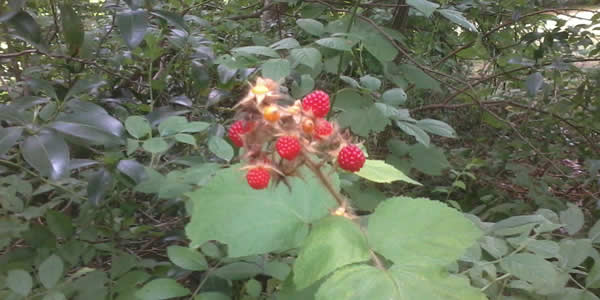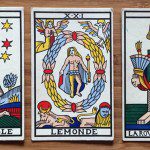“…brón trogein .i. lugnusad .i. taide fogamuir .i. is and dobroine trogain .i. talom fo toirtip. Trogan didiu ainm do talum”
– Tochmarc Emire la Coinculaind, page 246
“Brón Trogain, that is, Lúnasa, the beginning of autumn, it is then the earth is sorrowing, that is, earth under fruit. Trogan is another name for earth.”
Although Lúnasa is the common name among Irish pagans for the holiday celebrated on August 1st another, possibly older*, name for the holiday (and the one my family chooses to use) is Brón Trogain. Generally this is translated as “Sorrow of the Earth” although Sengoidelc being the interesting language that it is you can also understand it as “Sorrow of the Female Raven”, because trogan means, among other things, both “earth” and “female raven”. I have long associated Macha with this holiday based on my own intuition and because of a romantic notion that it may have been at a Lúnasa assembly that the Macha who cursed Ulster was forced to race**; then several years ago I had an dream of Macha and Nuada being honored at this holiday which was being called Brón Trogain. Since Macha and her sisters Badb and the Morrigan are called “mná trogain” – raven women – in the Sanas Cormac the idea of calling this holiday on which I honor Macha by a name that is, at least, a play on words with a term she is called by resonates with me.

Every year on Brón Trogain my children and I go out in the morning and gather berries from our yard. We say a prayer as we do so, an old reaping prayer altered to be more pagan and rewritten slightly to fit our modern non-agrarian lives:
Reaping Blessing 89
Gods may you bless our reaping,
Each ridge, and plain, and field,
Each sickle curved, shapely, hard,
Each berry and handful in the basket,
Each berry and handful in the basket.
Bless each maiden and youth,
Each woman and tender child,
Safeguard them beneath your shield of strength,
And guard them beneath the shadow of your power,
Guard them beneath the shadow of your power.
Encompass each living things here,
Each person, each animal, each plant,
Surround the rocks and herbs,
And your blade between them and all harm,
Your blade between them and all harm.
May Nuada Airgetlam, twice-king, bless us,
May Macha’s blessing be granted to us,
May the people of peace bless us,
And our ancestors of the graves and tombs,
and our ancestors of the graves and tombs.
(based off of traditional prayer from the Carmina Gadelica)

When we have collected a good amount we offer some of the berries to the aos sí and some to the Gods. The rest we bring inside and divide, a portion to have for breakfast and a portion to save for dessert later that night. Traditionally in Ireland the folk practice was to go out and gather the first crops from the fields, but as we live in the suburbs and have no crops only wild berries to gather we substitute these. Mixed into porridge the berries are quite good and the children are at least reminded of the idea of what we are celebrating, as well as getting to experience picking our own food from our yard.
Historically, Lúnasa was marked by athletic games and horse races, particularly a type of race where the horses had to swim across water. We don’t have many references to Brón Trogain directly, but we may generally assume that the traditions were similar as the two names were used interchangeably, so during the day before it gets too hot we play in the yard, making up our own athletic games with enough variety that each child is able to have fun without the eldest dominating everything (its harder than it sounds, with almost 10 years between oldest and youngest!). I tell the children stories, sometimes about Aine and Crom Dubh, sometimes about Lugh fighting Crom Cruach to win the harvest, sometimes about the Fir Bolg’s arrival in Ireland, or about Tailtiu dying to clear the plains. But I always include the tale of Macha the Fairy Woman and how she raced the king’s horses and cursed the men of Ulster.
Since one reference we do have to Brón Trogain mentions Finn mac Cumail having a feast prepared on this holiday, feasting is also an aspect of the holiday which we try to keep. When they day is done we have a big dinner with as many seasonal foods and vegetables as possible, portions of which are shared with our ancestors, the Gods, and the Good Neighbors. With the children being young our family ritual tends to be short and to the point, but I often will do a second one myself later in the evening as well, where I like to reflect on what I am harvesting in my life. It’s a good time not only to honor the Gods and Spirits who bless us but also to reflect on the things that I have worked for and put energy into in the last six months, to look at what has been achieved and what has failed. It sets the tone for the season as we move into autumn.

Brón Trogain – Sorrow of Earth – Lúnasa to most people, is a holiday to focus on both what we have to harvest and also on community. In my family we do this literally by gathering berries and by spending time together as a family as well as by enjoying local harvest fairs. We also honor these themes figuratively by reflecting on what we have nurtured and grown in our lives in the last six months. In the spirit of the ancient practices we have a small feast, and everything is shared in a ritual context with the Gods and spirits. Sharing what we have, which comes from the generosity of the Powers, is a way to show gratitude and also create reciprocity at this time when the things which have been grown since spring are falling to the blade of the harvest.
* M. MacNeil in her book Festival of Lughnasa discusses references in the Acallamh na Senórach which imply Brón Trogain was the original name later replaced by the name Lúnasa.
** according to the story it was at a great assembly with horse races, but the date is not given. However historically Lúnasa was said to be one of the most important holidays and assembly times to the pagan Irish so it is at least possible. To be clear though, the idea that she raced at this time is entirely my own supposition.

Patheos Pagan on Facebook.

the Agora on Facebook
Irish-American Witchcraft is published on the first and third Tuesday of a month. Subscribe via RSS or e-mail!
Please use the links to the right to keep on top of activities here on the Agora as well as across the entire Patheos Pagan channel.

















